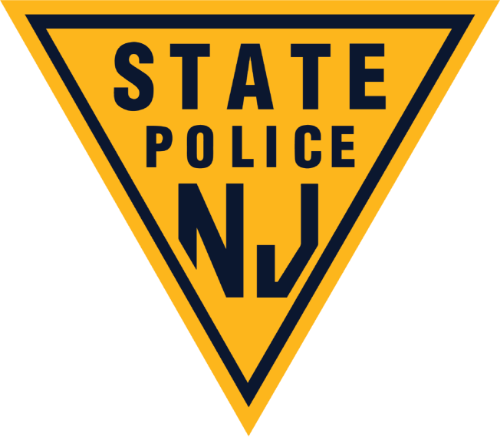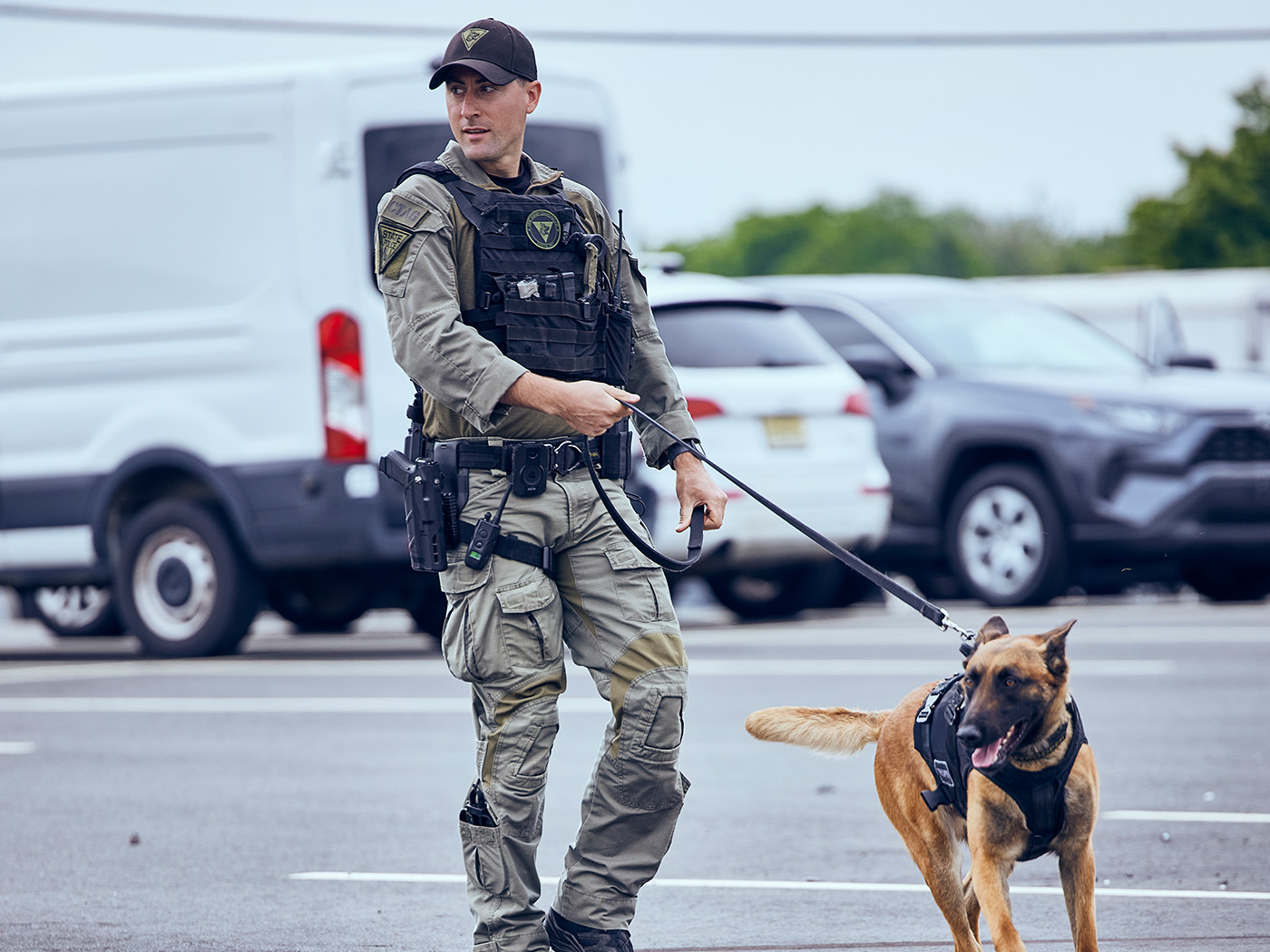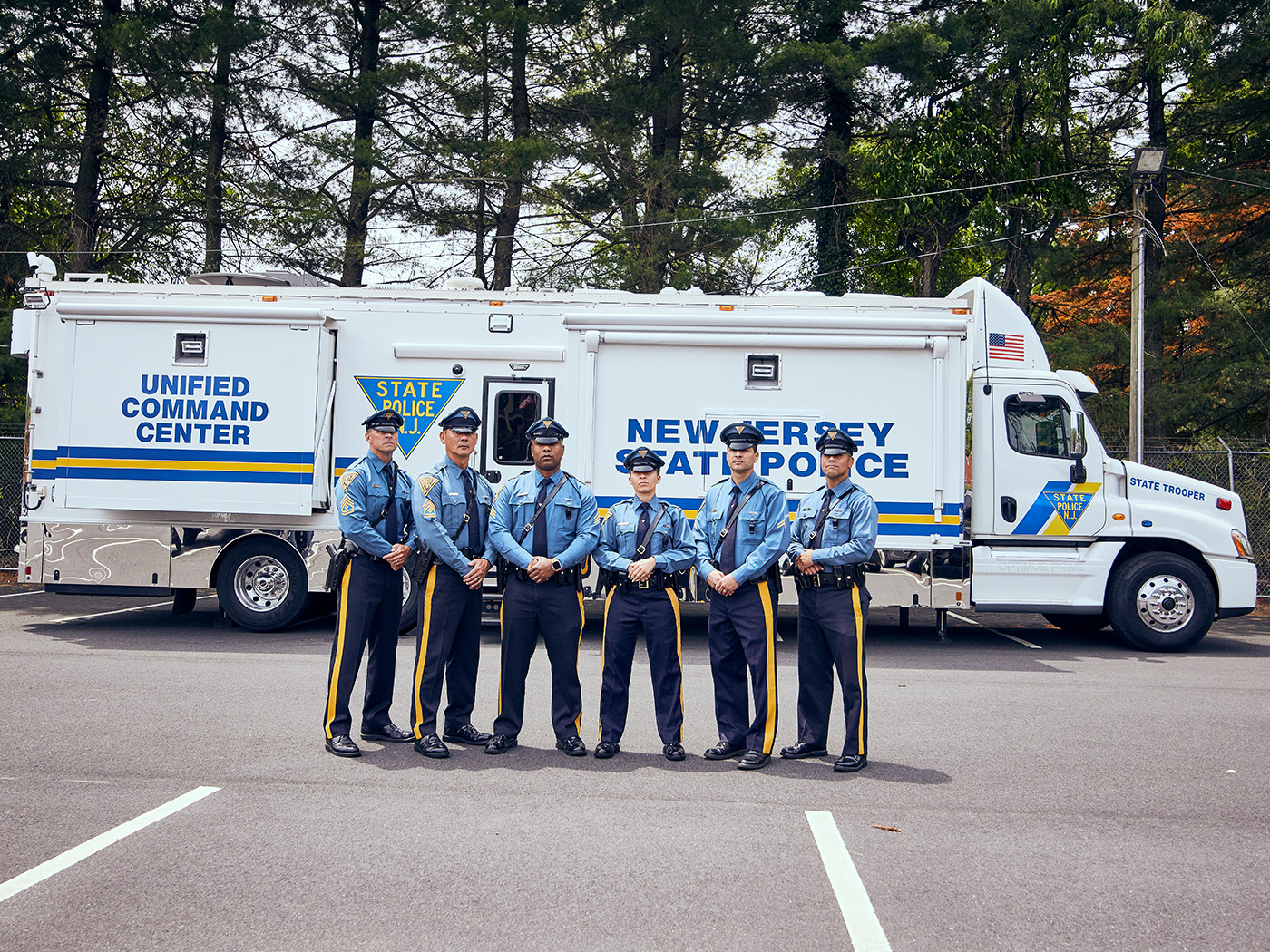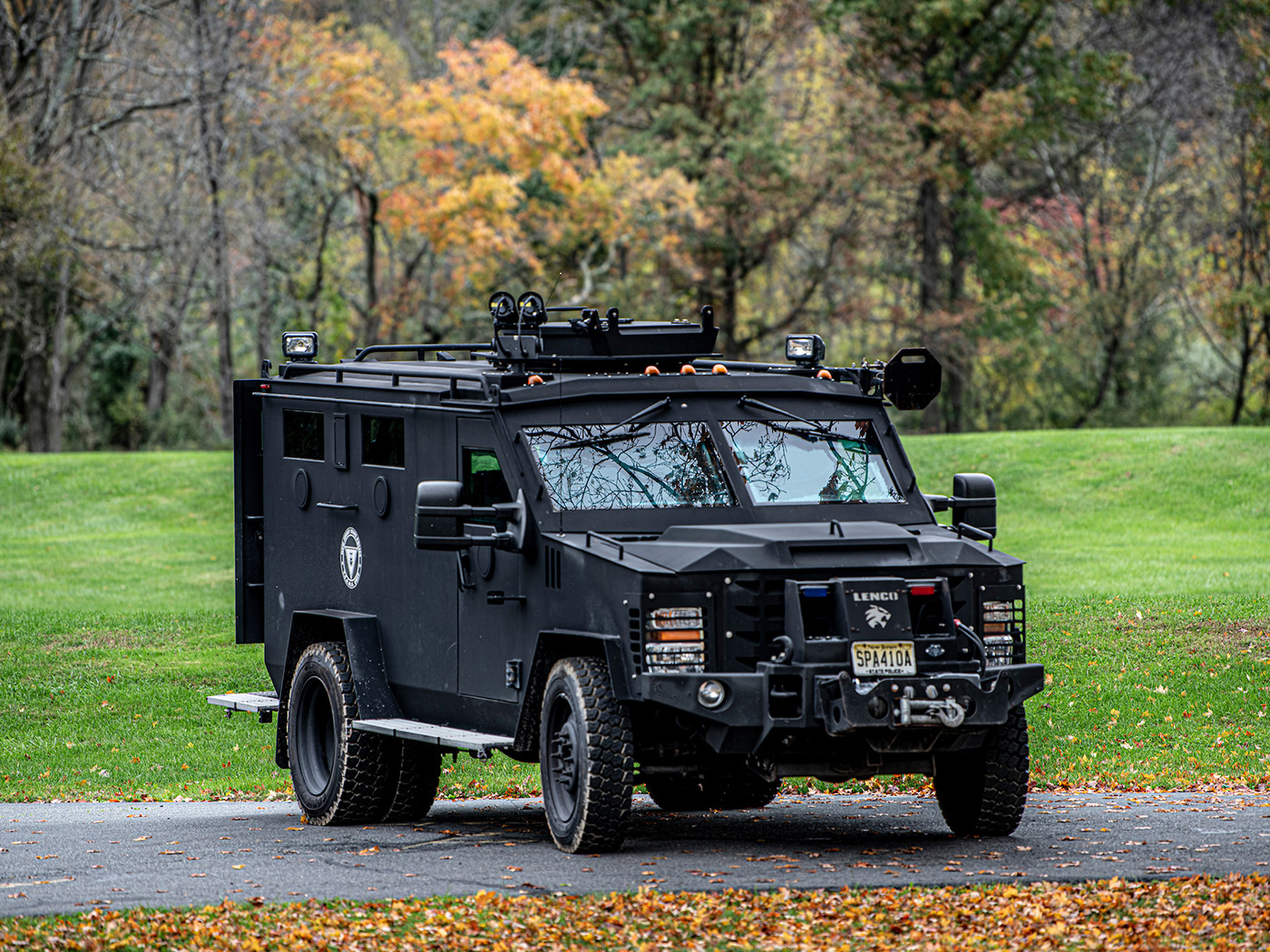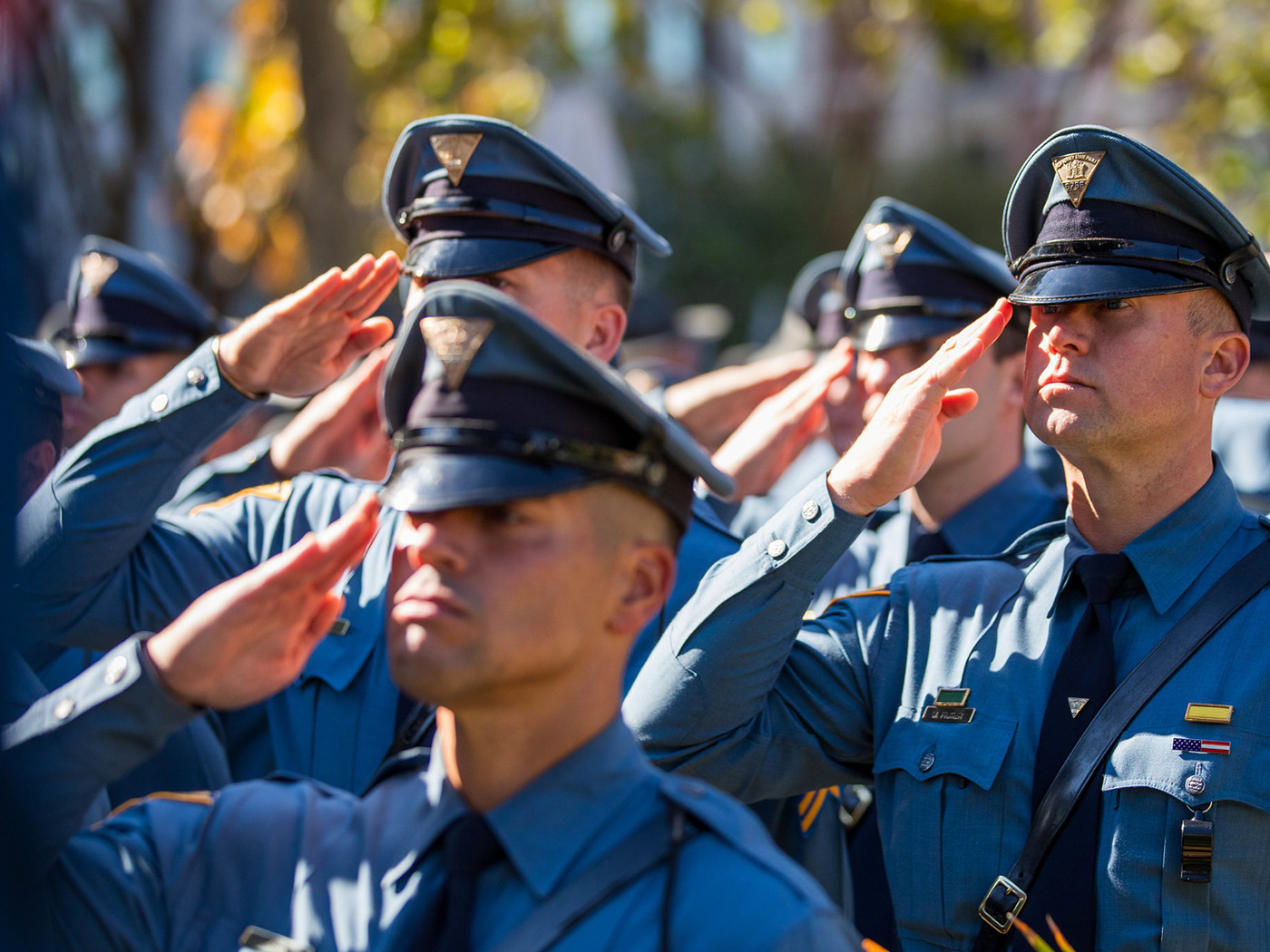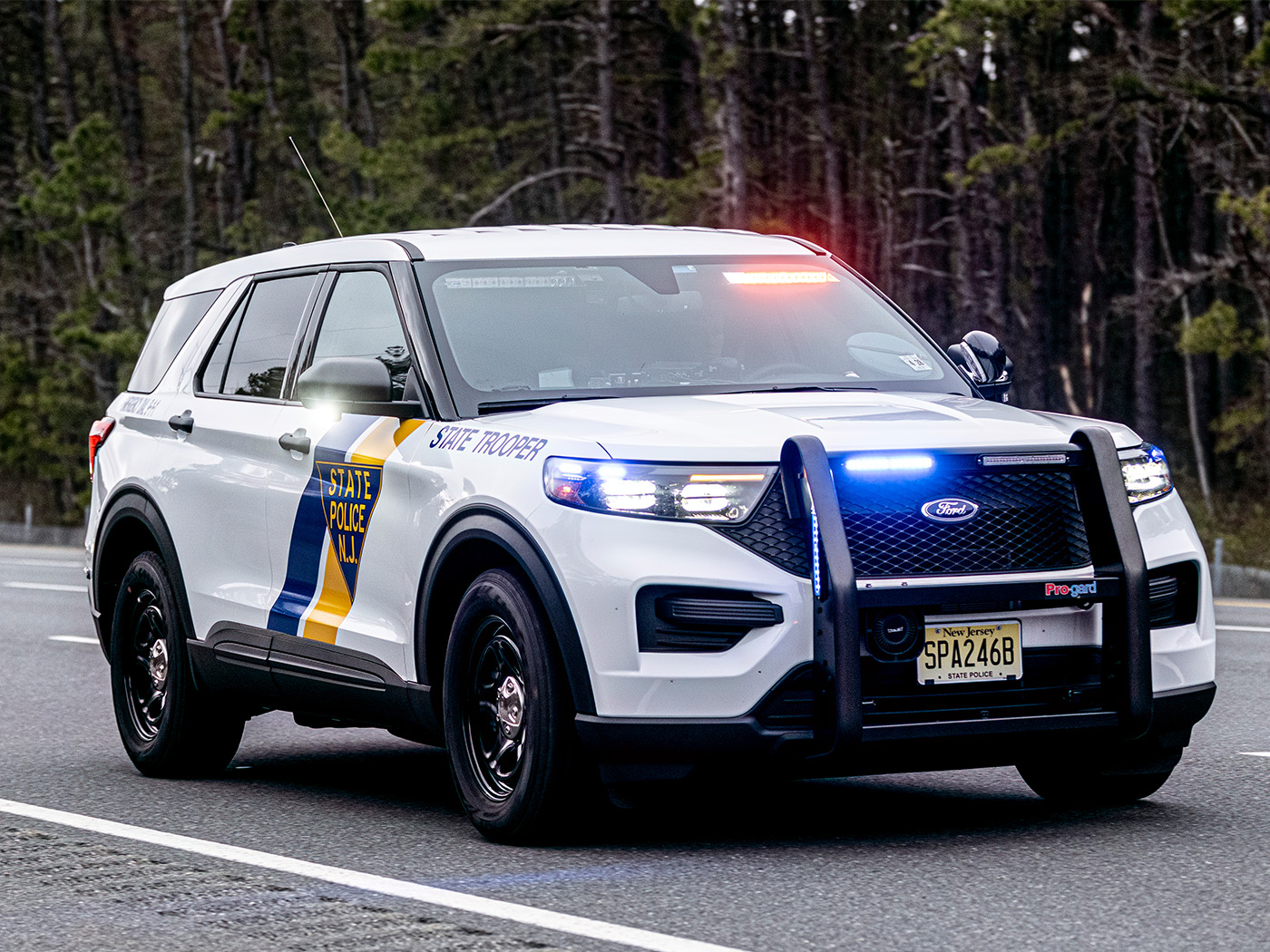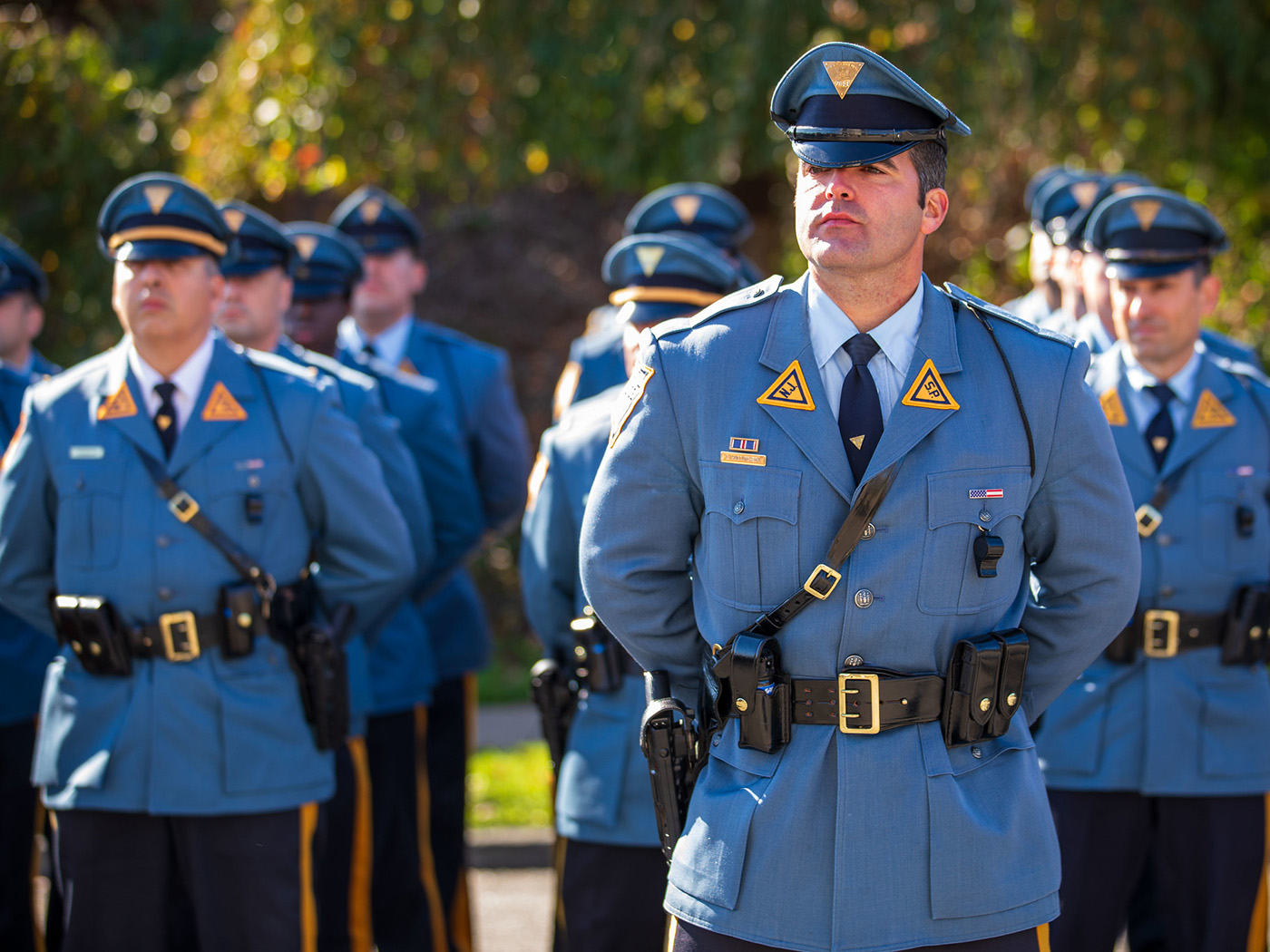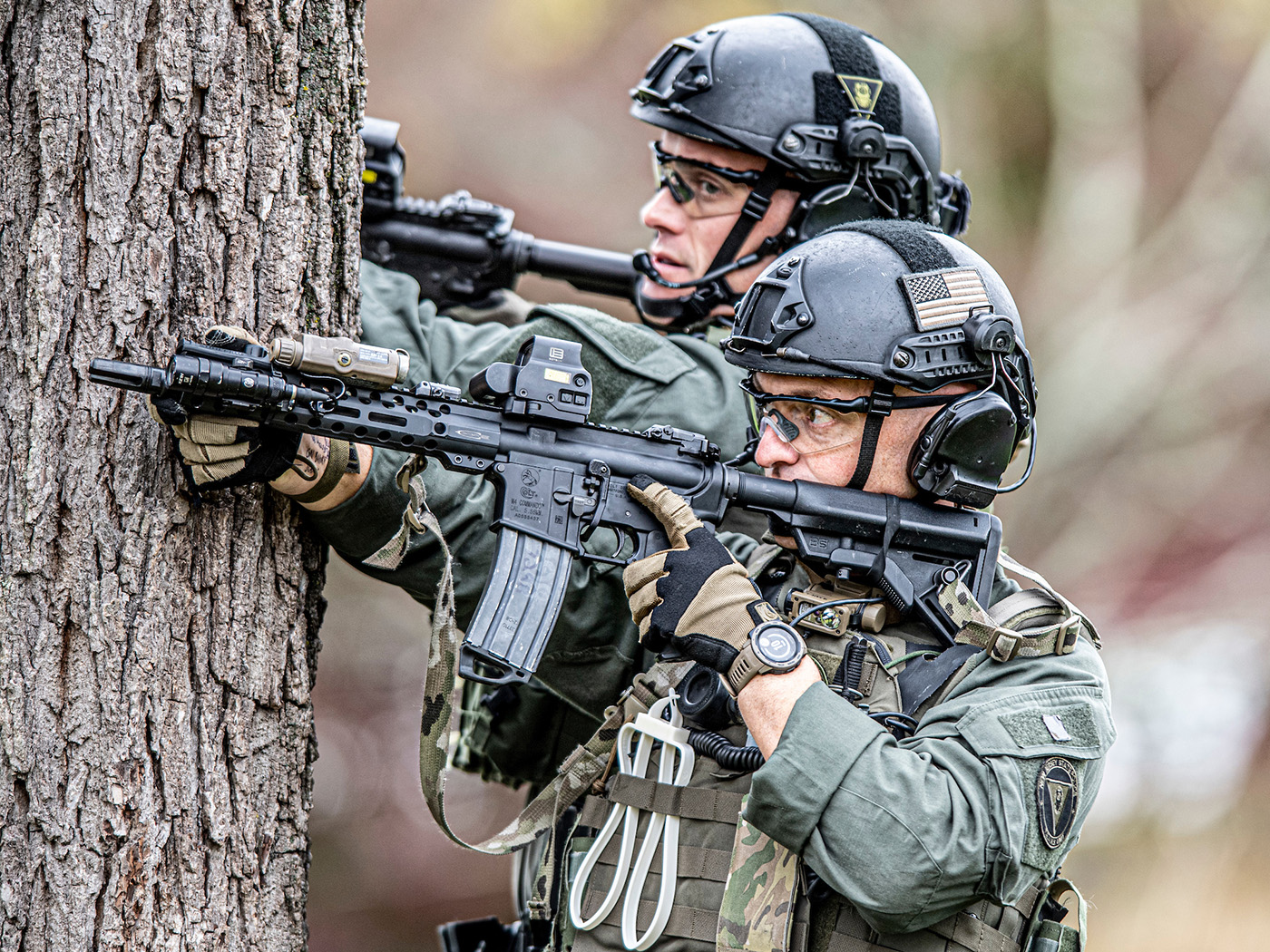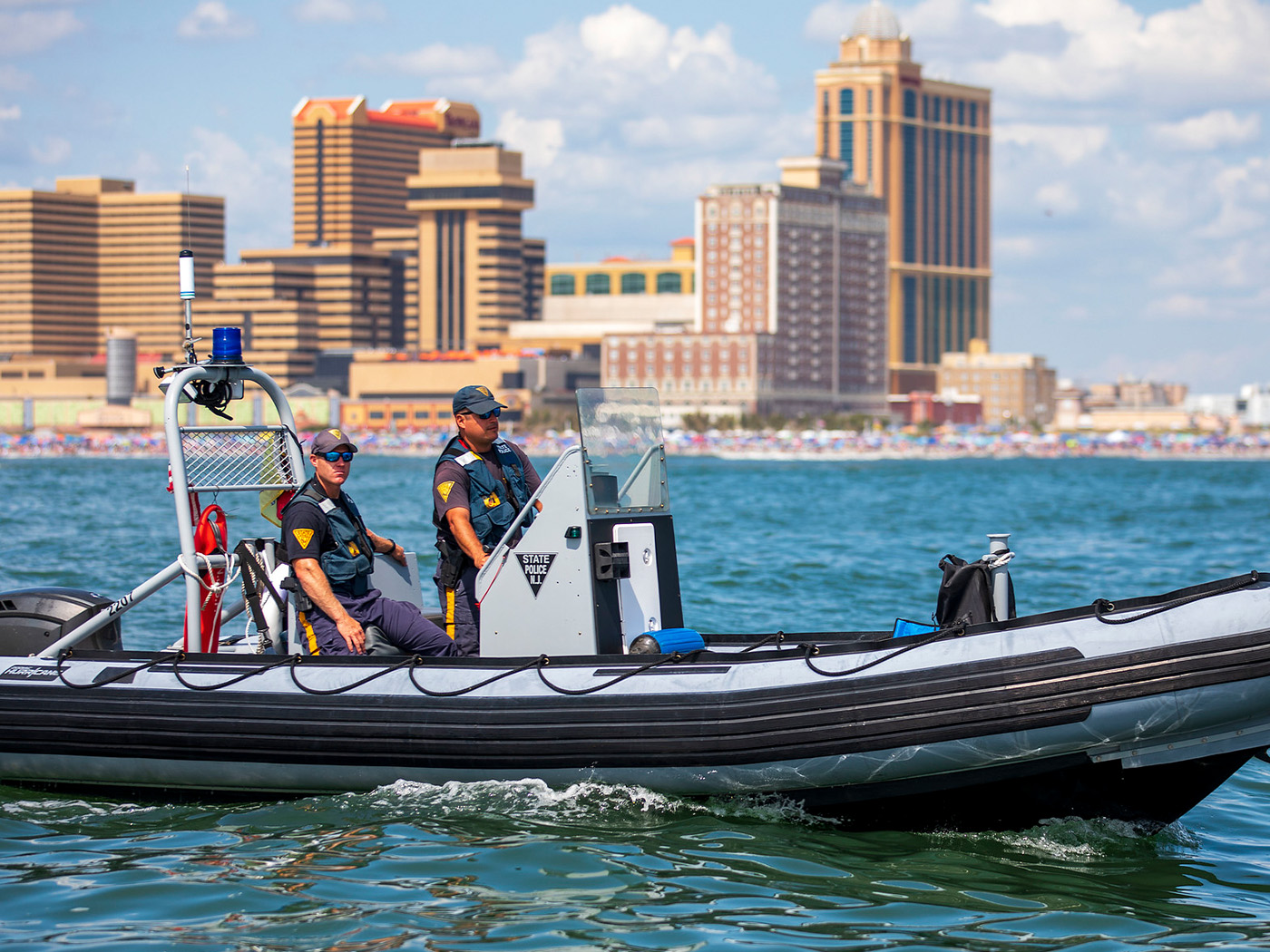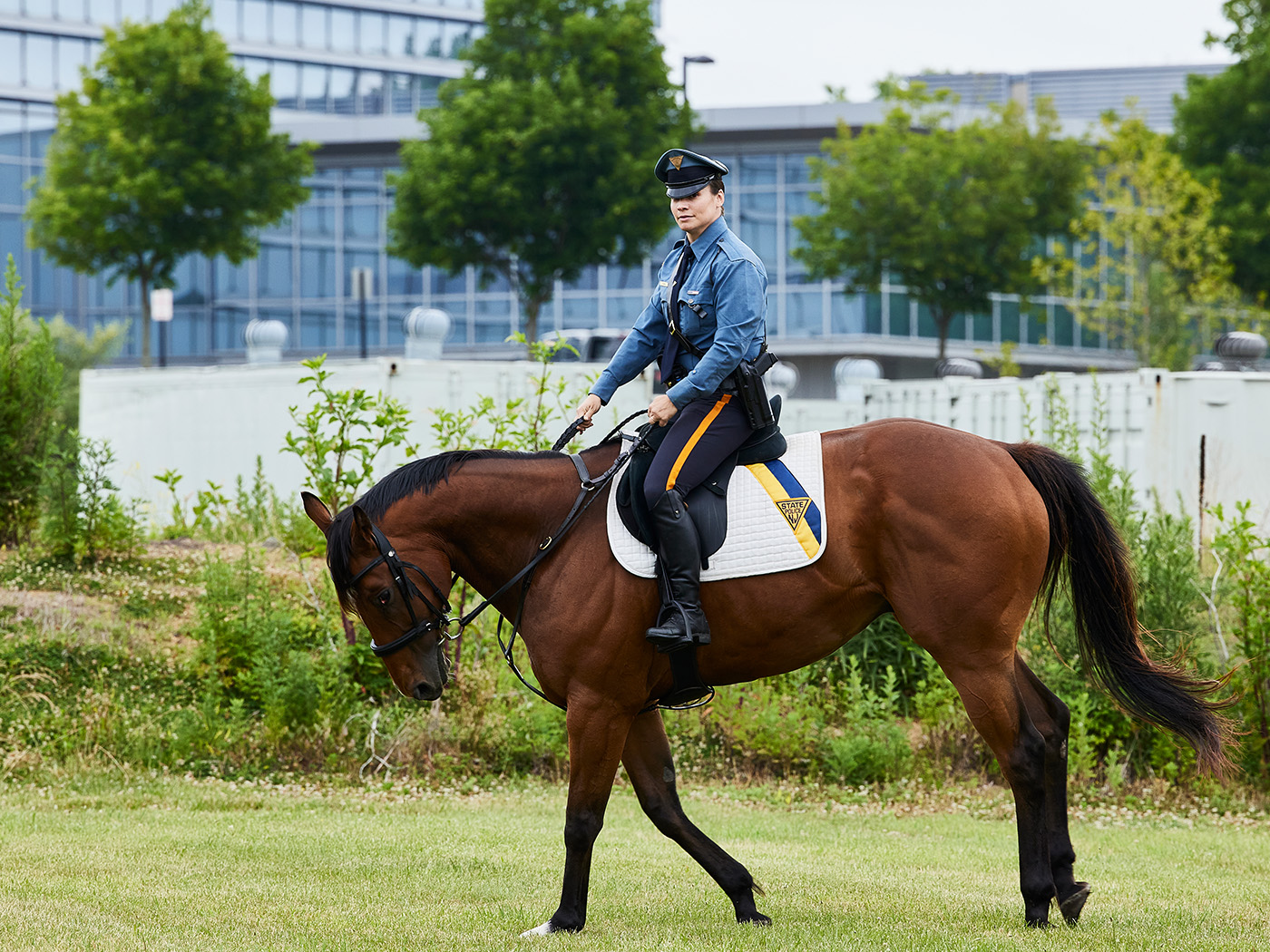On December 5, 1921, H. Norman Schwarzkopf, the first Superintendent of the New Jersey State Police, announced General Order #1. It was a proclamation encompassing the goals and aspirations of the NJSP as the state’s police force.
H. Norman Schwarzkopf
SUPERINTENDENT
“It shall be the duty of the members of the New Jersey State Police to prevent crime and pursue and apprehend offenders. Members should bear in mind that the prevention of crime is of greater importance than the punishment of criminals. The force individually and collectively should cultivate and maintain the good opinion of the people of the state by prompt obedience to all lawful commands by a steady and impartial line of conduct in the discharge of its duties and by cleanly, sober, and orderly habits by a respectful bearing to all classes.”

The New Jersey State Police has built itself into a comprehensive law enforcement agency supporting Col. Schwarzkopf’s vision. The NJSP maintains 28 “Road” (Patrol) stations responsible for traffic safety and enforcement and general policing responsibilities for 81 municipalities within the state. Troopers patrol all interstate and state highways, with over 120 specialized units operating throughout the Division. Moreover, the NJSP is home to the Regional Operations & Intelligence Center, an elite fusion center focused on the homeland security and emergency management needs of the state and the country. As part of the evolution of policing and interagency coordination, the NJSP maintains federal and municipal partnerships with the FBI, DEA, HSI, ATF, and Atlantic City, Camden, and Newark police departments.
THE NJSP HAS DISTINGUISHED ITSELF BY BEING AT THE FOREFRONT OF TECHNICAL ADVANCES IN POLICE PROCEDURES, INVESTIGATIVE ASSIGNMENTS, AND SUPPORT POSITIONS FOR THE FIRST LINE. EXAMPLES OF THE UNITS INVOLVED IN THIS IMPORTANT WORK ARE:
- Aviation Unit
- Polygraph Unit
- port security
- Bomb Unit
- Target Hardening Unit
- Strategic Inv. Unit
- outreach unit
- Major Crimes Unit
- Recruiting Unit
- Fugitive Unit
- marine services
- Narcotics Unit
- Canine Response & Training Unit
- Crime Scene Investigation (CSI) Unit
- Crime Suppression Unit
- Infrastructure Protection Unit
- Cyber Threat Intelligence Unit
- Casino Services Unit
- school security
- search and rescue unit
- Ceremonial Unit
- Technical Emergency and Mission Specialists (T.E.A.M.S.)
THE ROAD TROOPER
-
Arrest individuals who have violated the laws of the state of New Jersey. Handcuffing and subduing suspects may involve the use of force. A trooper will engage as necessary with the tools at their disposal to ensure the public's safety.
-
Process arrested suspects, which may include taking their photographs and obtaining fingerprints. Prepare and complete all case-related reports to the highest standard. It's your case! A trooper knows they are responsible for completing all tasks associated with an arrest to satisfy the court's requirements properly.
-
Operate a law enforcement vehicle at all hours of the day. A trooper will control that vehicle while driving to or during emergencies. This includes using high speeds through congested traffic or adverse weather conditions.
-
Communicate clearly and effectively on the radio to operational dispatch while initiating and responding to radio communications. This also involves constantly relaying newly acquired information to document all changes at a scene comprehensively.
-
Exercise sound judgment in determining when reasonable suspicion exists to detain, when probable cause exists to search and arrest, when force may be used, and to what degree. Effectively communicate with people, including juveniles, by giving information and directions, mediating disputes, and advising on rights and processes.
-
Ensure readiness is maintained through a fitness as a lifestyle approach. Troopers are expected to maintain fitness at a level high enough to accomplish physical tasks associated with policing, including, but not limited to:
- Pursue fleeing suspects and climb up or over obstacles.
- Perform rescue functions in accidents, emergencies, and disasters, including directing traffic for long periods of time, administering emergency medical aid, lifting, securing, and evacuating/dragging/carrying people from dangerous areas.
- Engage in self-defense techniques to subdue noncompliant suspects.
- Take part in crowd control assignments, which could involve riot gear or gas masks.
-
Maintain composure when subjected to verbal and mental abuse by hostile suspects and other people encountered in an antagonistic environment. This also applies to the patience necessary when dealing with persons undergoing severe emotional or mental distress due to mental illness, substance abuse, or a traumatic event.
-
Carry and patrol with firearms. Understand the responsibility needed to maintain marksmanship proficiency and justifiably discharge a weapon in the line of duty under stressful conditions.
A trooper must be able to perform ALL of the above essential job functions with or without reasonable accommodation upon graduation from the NJSP Academy.




